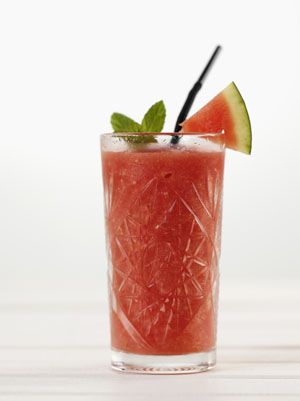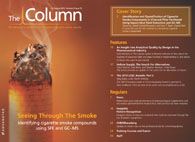Watermelon Juice Enhances Athletic Performance More Than Pharmacological Standard
Experts in the food industry are always searching for natural sources of bioactive compounds to develop products that enhance athletic performance. A new study has suggested that drinking watermelon juice may alleviate muscle ache experienced by many athletes, and non-athletes, following a period of exercise. The study published in the Journal of Agricultural and Food Chemistry showed that naturally high levels of L-citrulline in watermelon juice may be more effective than pharmacological supplements.

Experts in the food industry are always searching for natural sources of bioactive compounds to develop products that enhance athletic performance. A new study has suggested that drinking watermelon juice may alleviate muscle ache experienced by many athletes, and non-athletes, following a period of exercise. The study published in the Journal of Agricultural and Food Chemistry showed that naturally high levels of L-citrulline in watermelon juice may be more effective than pharmacological supplements.
Corresponding author Encarna Aguayo told The Column that L-citrulline intake has been reported to improve athletic performance — it is used in nitrogen oxide (NO) synthesis and has the ability to increase glucose transport into skeletal muscle. It has also been indicated as an accelerator of lactic acid removal, reducing muscle ache associated with lactic acid build-up.
Juice was derived from 10 seedless watermelons. The absorption potential of L-citrulline derived from the juice was compared to the absorption potential of a pharmacological standard, using an in vitro method and high performance liquid chromatography–mass spectrometry (HPLC–MS) analysis. Absorption of L–citrulline from natural watermelon juice was found to be greater than from a pharmacological formulation. Aguayo commented: “The watermelon juice is a more suitable vehicle for the transport and bioavailability of L-citrulline than when using a pure standard, in this instance, a pharmacological formulation.”
HPLC;&ndashMS measured the levels of naturally-occurring sugars within watermelon juice and this data was used to prepare a placebo of the same colour. Seven sport science students participated in a study where they were given 500 mL of either natural watermelon juice (containing 1.17 g naturally‑occurring L–citrulline); L–citrulline enriched watermelon juice (containing 6 g/500 mL); or a placebo (fruit juice infusion containing the same level of sugar as watermelon juice) 1 h before commencing exercise.
Aguayo said: “According to our study, the ingestion of 500 mL of watermelon juice or about 0.5 kg of watermelon (1.17 g of L-citrulline) helped to reduce the recovery heart rate and muscle soreness after 24 h. It is recommended to drink 1 h before the sport activity.” When asked about future work she added: “We are open to working with food companies to develop natural products such as beverages, juices, and energy bars enriched in L-citrulline instead of synthetic compounds from the pharmaceutical industry. We have the patent for the extraction of L-citrulline from cucurbitaceous fruits and it opens a new way to food natural products.”
Reference
1. M.P. Tarazona–Díaz et al., J. of Agric. and Food Chem.61(31), 7522–7528 (2013).
This story originally appeared in The Column. Click here to view that issue.

Regulatory Deadlines and Supply Chain Challenges Take Center Stage in Nitrosamine Discussion
April 10th 2025During an LCGC International peer exchange, Aloka Srinivasan, Mayank Bhanti, and Amber Burch discussed the regulatory deadlines and supply chain challenges that come with nitrosamine analysis.












